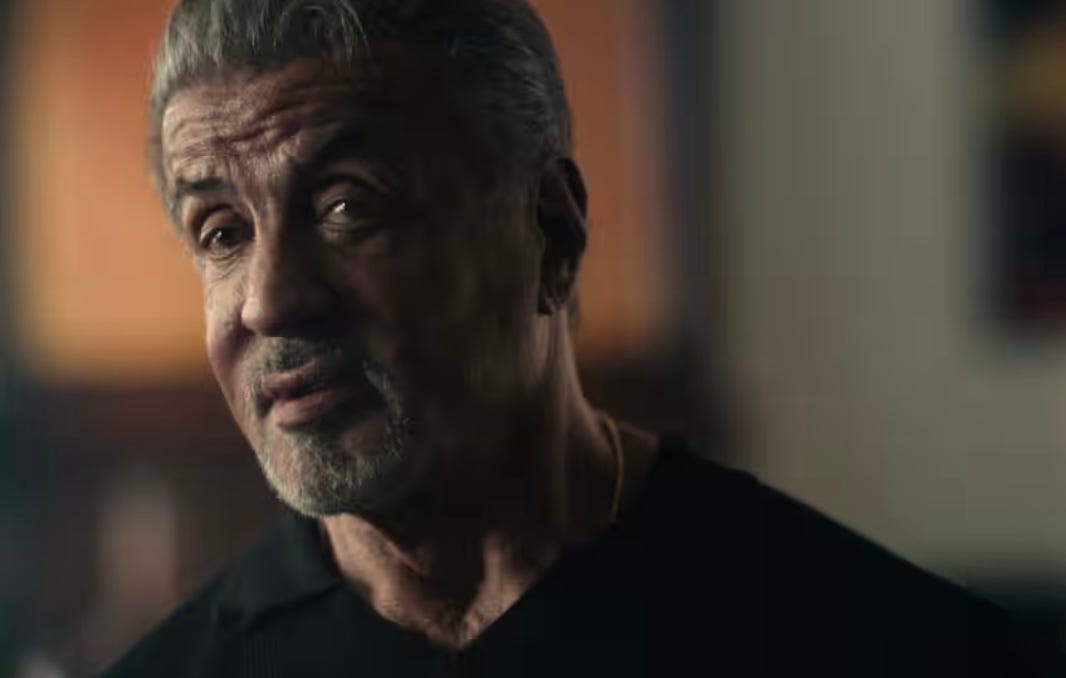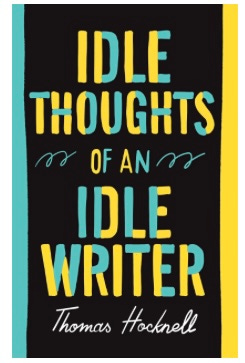Robbie Williams Versus Rocky Balboa
Robbie Williams and Sly on Netflix. The heavy entertainment show
Beckham, Arnold, Robbie Williams and Sly isn’t a glamorous firm of solicitors but is Netflix currently enjoying the benefits of celebrities with so much footage filmed that a documentary demands to be made. In their own way all the participants are happy to reveal who they are, albeit with a call on the final edit, while demonstrating how seemingly compulsory it is to decorate your house with lashings of gold (see also At Home with the Furys).
Of these, it’s our own historically disgruntled ex-Take That member Robbie Williams and heavy weight Sly Stallone, which best demonstrate two men with markedly different grasps upon their fame. One is a living embodiment of the American dream, while the other finds the benefit of not breaking America is being able to live there in anonymity.
In his own lovingly filmed mansion and pool with Rocky statue, Sylvester Stallone has always been a man who sees life as something to be conquered and contemplated in equal measure. Having realised that the only way he’d get a lead part in a movie was to write a role for himself, and thus Rocky was born. The first draft was written in three days in the LA suburbs near Balboa Blvd. He held out on offers for the script to be made without him, up to $265,000. As he puts it, what’s healthier, to live under the illusion and hold on to a glimmer of hope to be great, or to have had the opportunity to be great and you blow it? His charm is invigorating and it’s quickly apparent that his vulnerability is what drives him rather than his brawn. He’s a man who’s still striving.
Robbie meanwhile spends most of his time in pants, claiming he’s either on stage or in bed. He dwells over how much of his life he not only lost, but has felt lost in. Sylvester Stallone on the other hand is someone who has taken ‘if you don’t move, you get stuck’, to the sort of limits that lead you into an Expendables franchise of ageing action stars throwing themselves at the scenery with such gusto that it might be mistaken for a series of films promoting the advisability of having a chiropractor on speed-dial.
What the two men have in common is having successfully climbed the mountain of success and celebrity and discovered in very real times that while it’s what you wanted, it’s not necessarily what you needed. Success bring with it a while bunch of challenges that humans are not necessarily built for. However, parents are conspicuously absent from Robbie’s documentary. For Sly, his father was jealous and violent and clearly a driving motivation towards his success.
The difference between them, other than self-revelatory lyrics and cheeky end-of-pier smiles that Robbie seems to loath as frequently as he grins them, is that while Sly understands what has led him by the nose through life, Robbie is asking of his house, wife and convoy of touring trucks, Why me? It’s a question that the documentary demonstrates remains elusive to him. You might have a no.1 single, but next week it will be someone else, while you still struggle with parallel parking and have leaves to skim from the swimming pool This is somehow the story of a man chasing success against the odds, having already achieved stardom, as he finds and loses collaborators to assist in his determination to prove the naysayers wrong.
Invariably Robbie seems present but absent. At times looking like a chain smoking Irish pig farmer, at others a lost boy, as he dates beautiful women and plays huge shows. However, Geri Halliwell in the foreground shows momentarily how it is easy to stop looking at Robbie even when he’s jumping into the azure sea from some glossy white yacht.
At risk of turning this into a Rudebox love-in, it’s easy to relate to Robbie, if you too have released an absolutely stonking, bonkers, Haribos-fuelled album of thumping electro pop to utter disdain or at best indifference from the public. To be fair, it was the Sun slating the Rudebox single that turned everyone off; pretty much a perfect example of why you shouldn’t believe anything you read in the papers. The fans liked it, yet, guess who Robbie listened to? There’s a weird snobbery about dismissing 70,000 people a night saying you’re great in favour of critics saying your single is the worst thing ever recorded, which mainly due to its brilliance is clearly bollocks.
If Robbie’s not in bed, or on stage, he’s apparently wandering around his manicured garden in a woollen Guccy dressing gown that’s probably called something far more couture. As for Sly it’s unclear if he ever goes to bed, and when he does produces a sort of Hollywood identikit daughter. Sly knows where he is in life. Robbie seems as confused as ever, only really looking comfortable when reunited with his Take That chums for their creative zenith of the Progress album in 2010.
Meanwhile Stallone muses his life amidst his collection of toys, models, statues and busks of the characters he’s played, it’s with a a string sense of pride and insightful understanding. He appears to know who he is, accepting his limitations. Most significantly, as he moves into the twilight of his years, there’s the sense that he’s grateful for all that he’s fought for, while regretting prioritising work over family. He shows the importance of humility and the embracing of all that’s he has fought for. All men are judged by both their failures and his successes. It’s something that Robbie might learn from.
My book on writing - Idle Thoughts of an Idle Writer - is available at Amazon
https://www.amazon.co.uk/Idle-Thoughts-Writer-Reflections-creative/dp/B09157XCCG/ref=tmm_pap_swatch_0?_encoding=UTF8&qid=1697876270&sr=8-2






